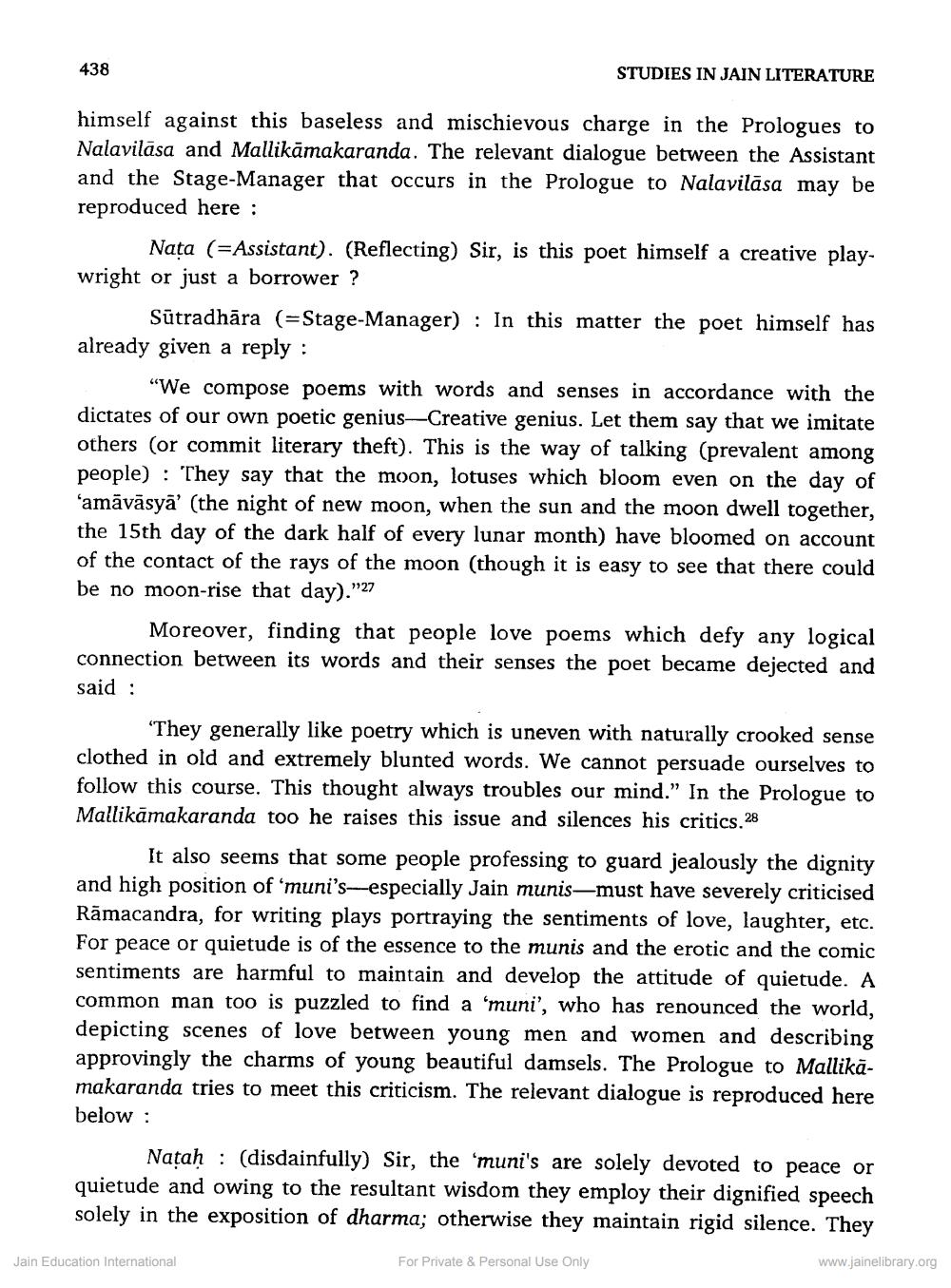________________ 438 STUDIES IN JAIN LITERATURE himself against this baseless and mischievous charge in the Prologues to Nalavilasa and Mallikamakaranda. The relevant dialogue between the Assistant and the Stage-Manager that occurs in the Prologue to Nalavilasa may be reproduced here : Nata (=Assistant). (Reflecting) Sir, is this poet himself a creative playwright or just a borrower ? Sutradhara (=Stage-Manager) : In this matter the poet himself has already given a reply : "We compose poems with words and senses in accordance with the dictates of our own poetic genius-Creative genius. Let them say that we imitate others (or commit literary theft). This is the way of talking (prevalent among people) : They say that the moon, lotuses which bloom even on the day of 'amavasya' (the night of new moon, when the sun and the moon dwell together, the 15th day of the dark half of every lunar month) have bloomed on account of the contact of the rays of the moon (though it is easy to see that there could be no moon-rise that day)."27 Moreover, finding that people love poems which defy any logical connection between its words and their senses the poet became dejected and said : 'They generally like poetry which is uneven with naturally crooked sense clothed in old and extremely blunted words. We cannot persuade ourselves to follow this course. This thought always troubles our mind." In the Prologue to Mallikamakaranda too he raises this issue and silences his critics.28 It also seems that some people professing to guard jealously the dignity and high position of 'muni's--especially Jain munis-must have severely criticised Ramacandra, for writing plays portraying the sentiments of love, laughter, etc. For peace or quietude is of the essence to the munis and the erotic and the comic sentiments are harmful to maintain and develop the attitude of quietude. A common man too is puzzled to find a 'muni', who has renounced the world, depicting scenes of love between young men and women and describing approvingly the charms of young beautiful damsels. The Prologue to Mallikamakaranda tries to meet this criticism. The relevant dialogue is reproduced here below : Natah : (disdainfully) Sir, the 'muni's are solely devoted to peace or quietude and owing to the resultant wisdom they employ their dignified speech solely in the exposition of dharma; otherwise they maintain rigid silence. They For Private & Personal Use Only Jain Education International www.jainelibrary.org




